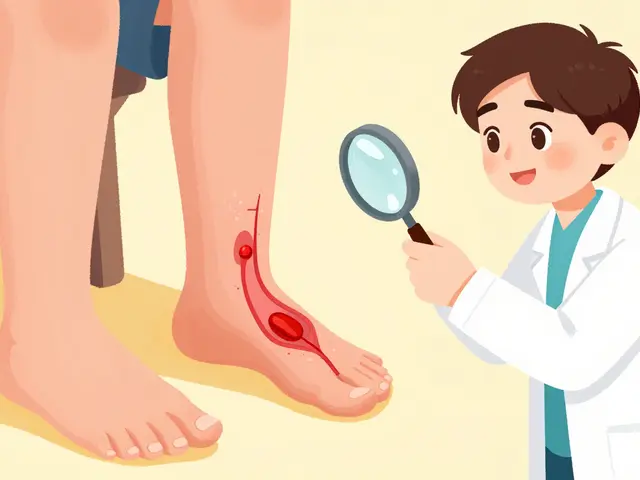Tetanus Prevention: Your Complete Guide to Staying Safe
When thinking about tetanus prevention, the set of actions that stop the life‑threatening bacterial infection caused by Clostridium tetani. Also known as tetanus protection, it relies on vaccines, proper wound care, and timely boosters.
At the heart of any prevention plan is the tetanus vaccine, an inactivated toxoid that trains the immune system to neutralize tetanus toxin. The vaccine creates antibodies that block the toxin’s ability to bind to nerve tissue. Tetanus prevention also includes a booster shot, a follow‑up dose given every 10 years to keep immunity strong. Without boosters, antibody levels fall and the risk of infection rises. Another key piece is proper wound care: cleaning a deep cut, removing foreign material, and applying a sterile dressing dramatically cuts the chance that dormant spores will germinate. When a wound is dirty or the patient’s vaccination status is unknown, doctors may administer tetanus antitoxin, a lab‑produced antibody that offers immediate, short‑term protection. These elements form a clear chain: tetanus prevention encompasses vaccination, effective wound care reduces tetanus risk, and booster shots maintain immunity. Together they create a safety net that works for everyone, from toddlers receiving their first DTaP series to adults needing a Td booster after an injury.
Practical Steps to Keep Tetanus at Bay
Start by checking your immunization record. The standard schedule calls for five doses in childhood (DTaP) and a booster at age 11‑12 (Tdap), followed by a Td or Tdap booster every ten years. If you’re unsure, a quick blood test can show whether you have protective antibody levels. For travelers or people heading into rural areas, a tetanus booster is a smart precaution before exposure to soil or animal waste. When you get a cut, wash it with soap and running water for at least two minutes, then apply pressure to stop bleeding. If the wound is puncture‑type, deep, or contaminated, seek medical care promptly—this is where the antitoxin may be given. Keep a small first‑aid kit at home and work, stocked with clean gauze, antiseptic wipes, and adhesive bandages. For parents, make sure children finish their DTaP series on schedule; schools often require proof of vaccination. Finally, remember that tetanus isn’t contagious—you can’t catch it from another person, only from the bacteria in the environment, which is why personal immunity matters most.
Below you’ll find a curated selection of articles that dive deeper into related health topics—vaccine comparisons, medication guides, and tips for managing chronic conditions. Whether you’re looking for the latest on immunization best practices or practical advice on wound care, the posts ahead will give you the details you need to stay protected and healthy.
How Social and Cultural Factors Shape Tetanus Prevention and Treatment
Explore how socio-economic status, cultural beliefs, and public‑health policies influence tetanus vaccination and treatment, with practical tips for effective prevention.
Read More





